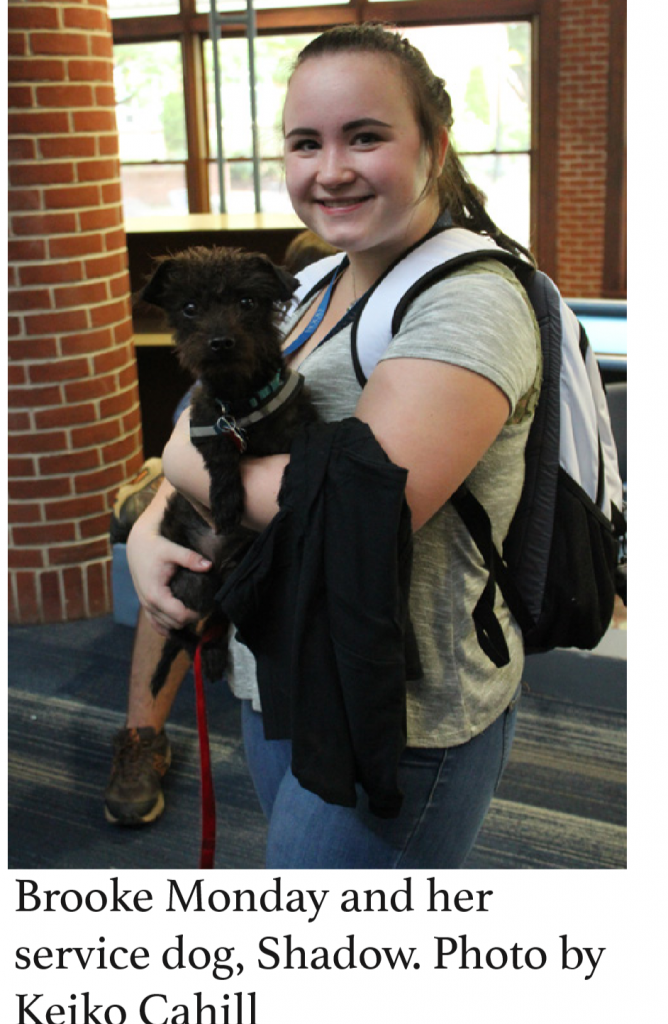An increase in service and comfort animals on campus may have many students wondering what they are here for.
Brooke Monday, a first year here on campus, shares her experience of having her service dog, Shadow, on campus.
Shadow has been training for his duties as a service animal since he was born. Part of his job is to notice when Monday needs comfort and provide it to her.
The majority of a service animal’s job is very personal and Monday opted to keep that information private as well as her reasons for having Shadow.
“I don’t like it went people pet shadow on duty,” said Monday. “He has a job to do while he has his vest on and with people petting him during that time, he gets distracted and can’t concentrate on me and my needs.
However, when he doesn’t have his vest on, people are more than welcome to pet him as much as they want. Like we as humans need down time to ourselves, so do dogs.”
Monday estimated that 1520 people ask to pet Shadow every day.
“One of the main things I would like to let people know is that through the ADA law people are legally to ask two questions to a person who has a service dog. ‘Is the dog a service dog required because of a disability? What work or task has the dog been trained to perform?’ Other question that are asked besides these two can cause legal problem and can make a person with a service dog uncomfortable. I wish people would stop asking me to pet Shadow when they know he’s working. Also, why I have him and what’s wrong with me, for me to have him,” said Monday.
The difference between a service animal and a comfort animal is important to understand. A service animal is an animal (usually a dog) that has been trained to perform tasks that assist individuals with disabilities to detect the onset of psychiatric episodes and lessen their effects.
Emotional support and therapy animals are not considered service animals as they do not go through the same training and are expected to provide comfort to more than one individual. They still give the support that the individual needs but are limited to most of the same areas as a normal pet, unlike service animals who are typically only disallowed from commercial kitchens for health reasons.
Comfort and therapy animals are more commonly known to stay at the home of the individual and give them support there, rather than staying with their owner throughout their day.


Be the first to comment